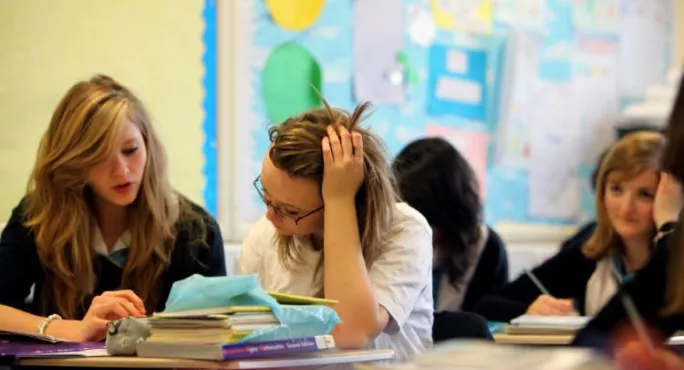- Home
- Exclusive: Six findings from the overdue EBacc consultation
Exclusive: Six findings from the overdue EBacc consultation

The government’s response to the English Baccalaureate (EBacc) consultation closed 18 months ago.
Here are the main findings from the consultation, which received 2,755 responses:
1. The headline EBacc attainment performance measure will change next year
Currently the percentage of pupils who get a grade C or above in the five core academic subjects that make up the EBacc is included in the secondary school performance tables.
And earlier this year, the Department for Education announced that the headline EBacc attainment measure in 2017 would be the percentage of pupils gaining a grade 5 or above in English and maths, and a grade C or above in the unreformed EBacc subjects.
But from 2018, the government intends to change the headline EBacc attainment measure from the proportion of pupils achieving a grade 5 and above in the EBacc subjects to an EBacc average point score.
They say this will measure pupils’ point scores across the five pillars of the Ebacc and ensure the achievements of all pupils are recognised, not just those at particular grade boundaries.
To help schools prepare for this new headline measure, the DfE plans to share the new 2017 EBacc average point score data with schools. This 2017 data will not be published.
2. Seventy-five per cent of pupils will be expected to start studying GCSEs in EBacc subjects by 2022…
The government will only expect 75 per cent of pupils to be studying EBacc subjects - English, maths, history or geography, the sciences and a language - by 2022.
And the 90 per cent goal, set out in the EBacc consultation that closed 18 months ago, has been pushed back to 2025.
3. …but not all schools will be expected to hit the EBacc target
The DfE has decided that it is “not appropriate” to expect the same rates of EBacc entry from university technical colleges, studio schools and further education colleges with key stage 4 provision, as in mainstream schools.
The pupil cohorts in these education settings will therefore not be included in the calculation of the 75 per cent ambition for 2022, or the 90 per cent ambition for 2025.
4. Ofsted will clarify how schools will be inspected to reflect EBacc policy
Ahead of September 2018, Ofsted will issue a note to clarify how the inspection of provision at key stages 3 and 4 will reflect the EBacc policy, taking into account the starting point of each school and the steps the school has taken to respond to the EBacc policy.
No single measure, including EBacc entry and achievement rates, will determine the outcome of a school inspection and Ofsted will not be setting any particular thresholds within those measures to determine inspection outcomes.
5. More than a third of schools struggle to recruit language teachers
When asked which challenges schools had experienced in teacher recruitment to EBacc subjects, more than a third (38 per cent) said they had struggled to recruit language teachers.
Meanwhile, about a quarter identified challenges in recruiting science and maths teachers.
As a way of addressing the challenges, 21 per cent said that the government should provide more and/or higher financial incentives to attract and retain teachers - such as increased bursaries, retention bonuses and increased pay.
And almost a fifth said that teachers’ working conditions should be improved in order to recruit more teachers to the profession.
6. Most respondents were concerned about whether schools would maintain a broad and balanced curriculum
When asked which issues schools would need to consider when planning for increased an number of pupils taking the EBacc, 71 per cent of responses made reference to how schools would be able to maintain a broad and balanced curriculum.
Among those responses were issues such as ensuring pupils can take three science subjects at GCSE, both history and geography, and preserving the place of arts, technology and creative subjects in the wider curriculum.
Of the parents who answered this question, this was the issue they most commonly raised.
Some responses to the consultation questioned whether the changes proposed would result in a reduction in the number of pupils taking qualifications in other subjects, particularly arts subjects, design and technology and technical qualifications.
Want to keep up with the latest education news and opinion? Follow Tes on Twitter and like Tes on Facebook
Keep reading for just £1 per month
You've reached your limit of free articles this month. Subscribe for £1 per month for three months and get:
- Unlimited access to all Tes magazine content
- Exclusive subscriber-only stories
- Award-winning email newsletters



